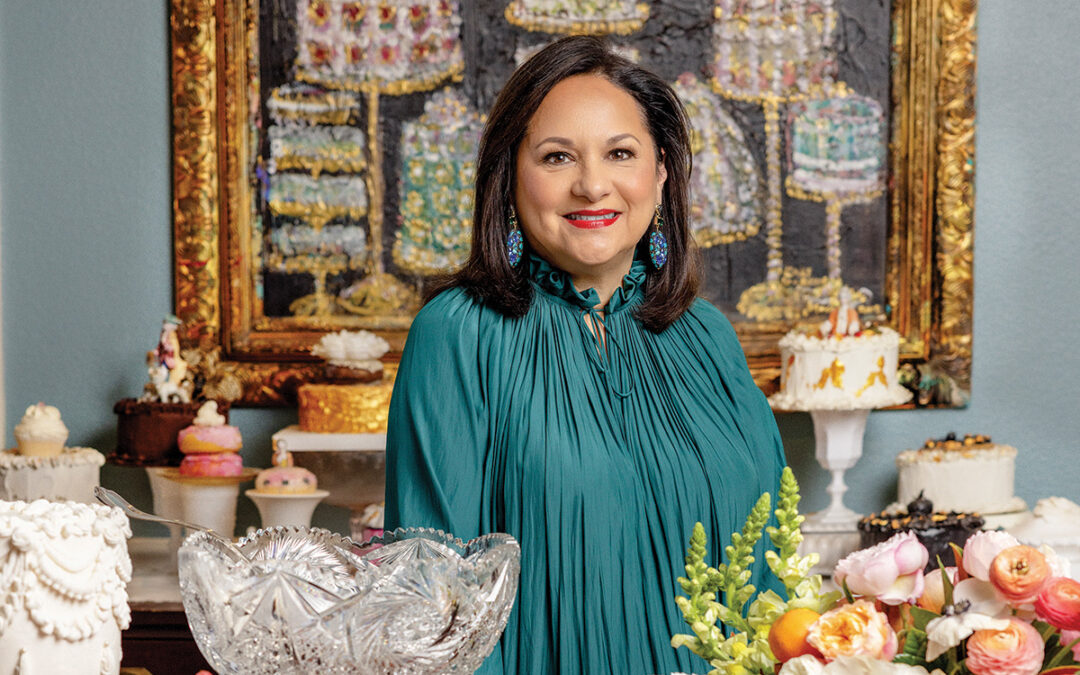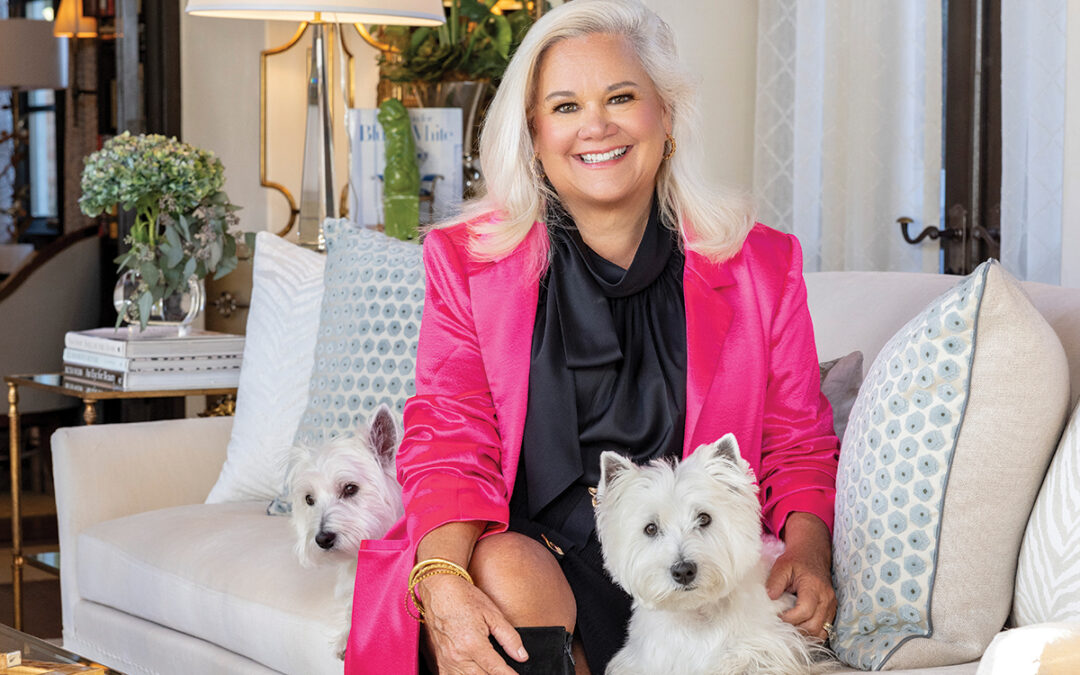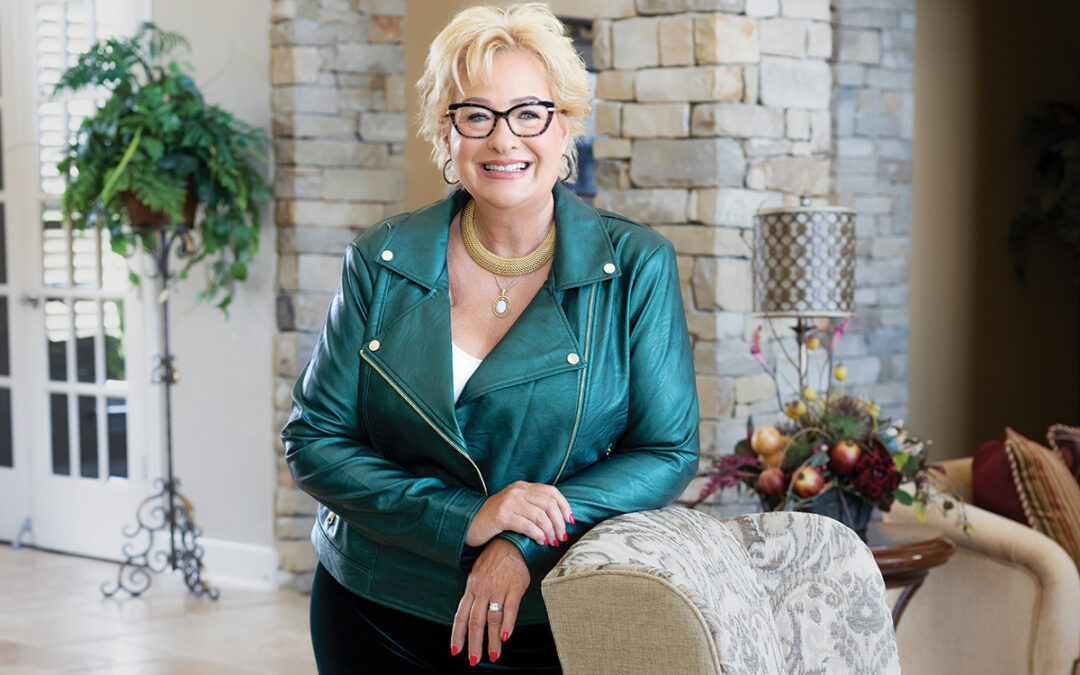Family, perseverance and a true sense of justice bring Judge Sandee Bryan Marion to the bench
Judge Sandee Bryan Marion has learned that it probably is not a good idea to quarrel with destiny.
Marion was the youngest of three daughters. Her father, William Bryan, was a lawyer. Her mother, Dorothy Bryan, was a stay-at-home mom who believed that a woman’s place was in the House — and the Senate — and sitting on the school board. “My mother was the first woman trustee on the board of the Northeast Independent School District. She also ran for the State Legislature,” Marion says. “I was so blessed that they were my parents.” So was it always obvious that Marion would blend law and politics in her own life? Not really. In 1976, she earned a bachelor’s degree in Spanish from the University of Texas at Austin, where she graduated in three years — with honors. “I thought I wanted to teach Spanish. I didn’t decide until my last year in college that I wanted to be a lawyer,” she says. “I remember my father’s reaction. He really tried to discourage me. He thought law would be very, very difficult for me as a woman.”
Remember, this was during the decade when civil rights and labor lawyer New York Congresswoman Bella Abzug adopted the lifelong habit of wearing a hat to discourage people from mistaking her for a secretary. Also, Marion’s father had left some pretty big footprints for anyone to follow. He graduated in 1949 at the head of his class at St. Mary’s University School of Law, and when he took the bar exam his grade was so high that it was 15 years before anyone surpassed it. Undeterred, Marion took the LSAT and applied to her father’s alma mater. He never again spoke a discouraging word on the subject of her career choice.
“In fact, the next year, when I was a first-year law student, I said, ‘I’m not sure going to law school was the right thing for me,’” Marion says. Her father advised her to get her degree and take the bar exam, then she could decide if she preferred to strike out in another direction.
Then, Bill Bryan, in effect, put his money where his mouth was. He left the insurance business and returned to school himself to earn a master’s degree in taxation law from New York University Law School. He returned to San Antonio, and until his death in 1993, he practiced the type of law that he liked best.
Even though women made up one-third of Marion’s law school class, she couldn’t shake the feeling that she had to work harder to prove herself. She felt that if she did not succeed, it would be more than a personal failure; it would be a reflection on other young women who were struggling to break out of the mold dictated by tradition. In 1980, with the ink still damp on her degree, she was offered a position with Hollon & Marion, a law firm in quiet, rural Boerne, where she would be the only woman practicing law in the whole community. She had reservations about accepting the position, which she talked over with Al Leopold, a professor who had taught her community property law. “It will be tough,” she said. He agreed, adding, “But I think you can do it.”
Marion wore a virtual uniform to court: a gray pinstripe suit — with a skirt, of course. She wore a gray shirt with a bowtie, and her long blonde hair was pulled back into a rather austere bun. Her interest was in practicing family law. In Boerne, she handled will contests, divorce and custody cases and a slew of real estate litigation, “because people in the Hill Country are very protective of their property, and a boundary line variation of even a few feet could wind up in court.” She got real satisfaction from the cases dealing with family law, and she found she thoroughly enjoyed the ditch-digging work of tracing the history of property deeds. “In the six years I was with the firm in Boerne, they let me try cases all over the Hill Country. That job was the greatest courtroom experience a young lawyer could have,” Marion recalls.
She got married, had a daughter and was divorced. In 1986, she left Boerne, and for a short time was assistant district attorney in the 216th Judicial District in San Antonio before moving into a position as partner and associate with Goode, Casseb, Jones (formerly Sawtelle, Goode, Davidson & Troilo). In 1988, she became board certified in the practice of family law. In 1989, as the Republican nominee for a vacant Bexar County probate court seat, Marion battled Democrat Polly Jackson Spencer in what may have been the most civilized political race in history. It was a hard-fought and high-dollar contest, but there was no name-calling, no personal attacks, no rancor. When election returns were in and Marion learned that she had lost, she asked in a forlorn voice, “Now, what am I going to do with 3,000 campaign signs?”
“Run again,” her father answered.
In 1992, she challenged incumbent Bob Lee for his seat on the county’s other probate court. Her victory was overwhelming, and her father lived to see her sworn in. “He was very proud,” Marion says. The clean campaign waged between Marion and Spencer in 1990 left the door wide open for total cooperation, now that the two former political foes were the only Bexar County judges specializing in probate matters. Probate court, which deals with estate settlement and guardianship of senior citizens, the mentally ill and the mentally retarded, was right up Marion’s alley. She and Spencer worked to improve Bexar County’s probate operation. They organized training seminars on probate law for young — and for more experienced — lawyers across the state. And they worked together to save the county money. In 1987, the males-only Rotary Club opened its rolls to women, and in 1989, Marion’s father nominated her for membership. In 1998, she became the first woman president of San Antonio Rotary Club, the second largest local affiliate in the world. “The club members really embraced me. I felt like they wanted me to succeed,” Marion says. Today, Marion’s personal life almost could have been lifted from a Disney movie. Eight years ago, she married gastroenterologist Homero Garza, a single father who she got to know because her daughter Natalee and his daughter Nicole were best friends in the third grade. After the marriage, there was no painful period of adjustment, such as most blended families experience. The couple’s relationship was an outgrowth of the friendship of their children, which continues as strong now that they are both college sophomores as it was when they were third-graders.
It was icing on the cake when, in January 2002, Marion was appointed by Texas Gov. Rick Perry to the 4th Court of Appeals, a seat she retained by trouncing her opponent in the Republican primary in March. She had no Democratic opposition in the general election in November. As a probate judge, Marion proved that she is someone who refuses simply to go with the flow. The hardest case, she says, was one in which a comatose, critically ill 42-year-old woman had more than once expressed in writing that she would not accept a blood transfusion because, as a Jehovah’s Witness, it violated her religious beliefs.
The woman’s daughter petitioned the court for temporary guardianship so she could consent to a transfusion for her mother. The woman’s husband added his pleas to those of his daughter, tearfully begging the court to clear the way for his wife to receive blood. “I ruled that the woman had made the choice and we had to honor it,” Marion says. After considerable soul-searching, Marion chose to accede to the wishes of the patient. She denied the daughter’s request for guardianship.
“It was the most emotional decision I ever made,” Marion says. “For the first few days, I read the obituaries to see if this woman’s name was there.”
In an odd twist of fate, Marion’s husband called her from the hospital one evening and told her that he had a patient, a Jehovah’s Witness.
“I can’t tell you her name,” Garza said, “but she seems to be coming around.”
“Ask her if she wants a transfusion,” Marion said, almost holding her breath. The patient declined. However, the story had a happy ending: The patient survived. “When she was well, she and her husband came to see me,” Marion says.
By Loydean Thomas
Photography Lizy Garza-Williams









0 Comments